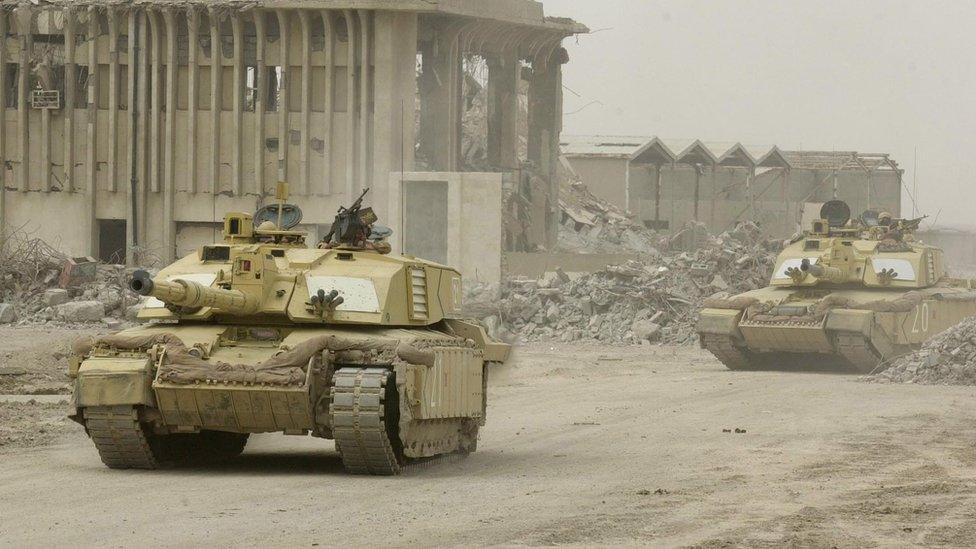Iraq Inquiry: Chilcot report to be published on 6 July
- Published
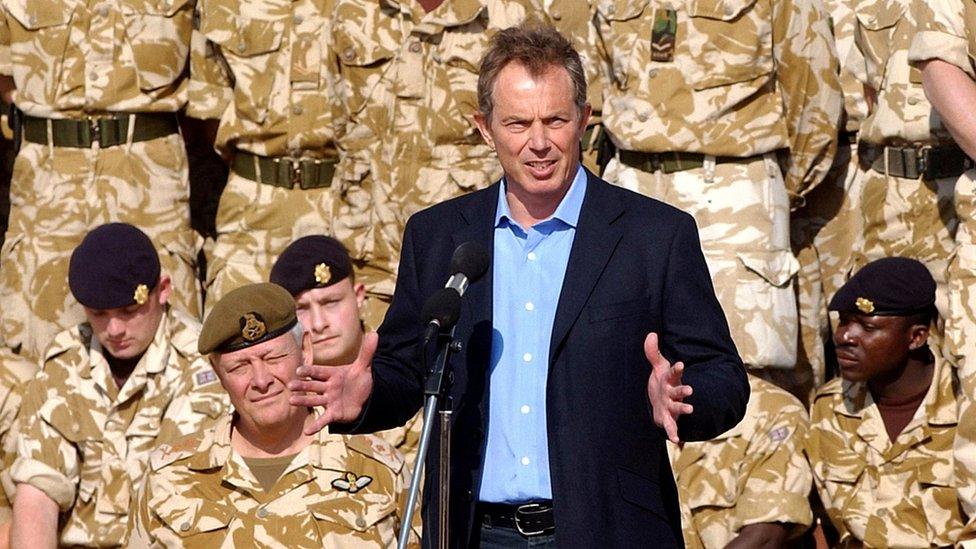
Former Prime Minister Tony Blair appeared before the Inquiry twice
The long-awaited report into the Iraq War will be published on 6 July, inquiry head Sir John Chilcot has said.
Sir John said national security vetting of the report had been completed and it would be published without any material being redacted.
Relatives of the 179 British service personnel killed in Iraq between 2003 and 2009 would get "early sight" of the report, he added.
Prime Minister David Cameron said the publication date was "good news".
Why has Chilcot taken so long?
A spokesman for Tony Blair, who led the UK into military action and gave evidence twice to the inquiry, said the former PM "welcomed the fact that a date has been set for the publication of the report".
The public inquiry was launched in 2009 into the UK's participation in the US-led invasion of Iraq - which led to the toppling of Saddam Hussein and led to British troops remaining on Iraqi soil for six years.
'Proofreading'
The last public hearing took place in 2011. The report's publication was delayed initially by protracted negotiations over what previously classified material could be published and referred to, including correspondence between Mr Blair and US President George W Bush.
There was a further hold-up because the process of giving witnesses criticised in the report the right to reply took longer than anticipated.
Sir John said the final report would be more than two and half million words long and a date in early July would allow sufficient time for "final proofreading, formatting, printing and the steps required for electronic publication".
"National security checking of the inquiry's report has now been completed, without the need for any redactions to appear in the text," he said in a letter to Mr Cameron., external "I am grateful for the speed with which it was accomplished."
In response,, external Mr Cameron - who has expressed frustration at the time taken to complete the report - said: "It is indeed good news that the national security checking process has been completed within two weeks and without the need for any redactions."
Jack Straw, who was Tony Blair's foreign secretary in the run-up to the war and gave evidence to the Chilcot inquiry, said he was "very pleased" that a date had been set for publication.
Lance Corporal Thomas Keys died in the Iraq War - his father Reg Keys told the BBC it had been a "mini nightmare" waiting for closure
'About time'
He told the BBC News Channel that the report was a "massive task" and he hoped it would be as "comprehensive" as possible.
"Well I'm glad that the report now is coming out - it's over seven years since it was first established and I look forward to seeing what conclusion Sir John and his colleagues come to," he said.
"It was a very important and controversial decision and it is right that the Inquiry has taken the time they felt they needed."
UK military fatalities
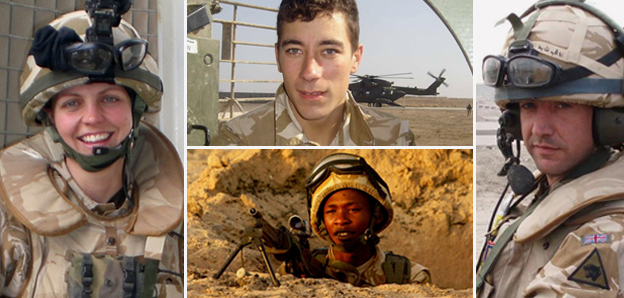
Full details of the 179 British servicemen and women who died, external
Former Lib Dem leader Lord Ashdown said it was "about time" the report was made public and while he respected Sir John's independence, he believed future inquiries must be conducted in a more timely way.
"They say justice delayed is justice denied, so any delay is unfortunate," he said. "The question is how do we do these things in future and we have to do them much better than this."
Rose Gentle, whose Royal Highland Fusilier son Gordon was killed in a bomb attack in Basra in 2004, said: "We are glad we have finally got the date. We just hope that everything we want to be in it is actually in it."
Sir John has said he will not shirk from apportioning blame where he feels that it is justified, both in terms of the decision to go to war and the preparations for its aftermath.
- Published14 April 2016
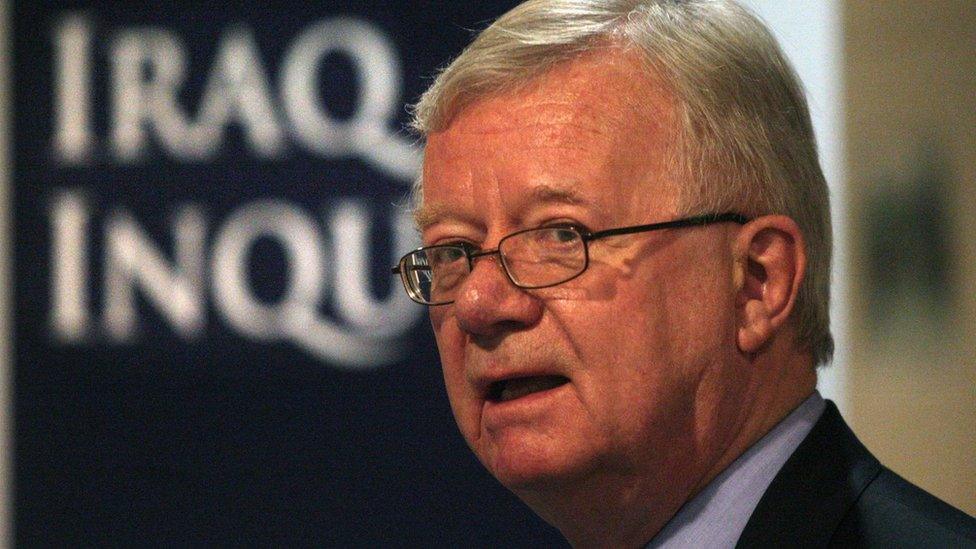
- Published5 July 2016
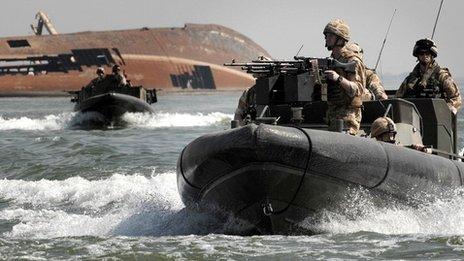
- Published29 October 2015
